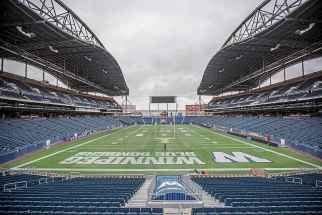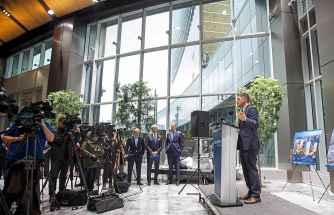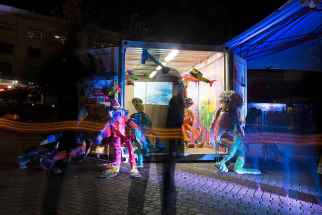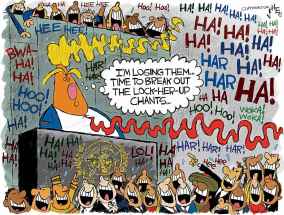Province huddles with Bombers, Triple B to score new stadium-funding deal
Read this article for free:
or
Already have an account? Log in here »
To continue reading, please subscribe:
Monthly Digital Subscription
$0 for the first 4 weeks*
- Enjoy unlimited reading on winnipegfreepress.com
- Read the E-Edition, our digital replica newspaper
- Access News Break, our award-winning app
- Play interactive puzzles
*No charge for 4 weeks then price increases to the regular rate of $19.00 plus GST every four weeks. Offer available to new and qualified returning subscribers only. Cancel any time.
Monthly Digital Subscription
$4.75/week*
- Enjoy unlimited reading on winnipegfreepress.com
- Read the E-Edition, our digital replica newspaper
- Access News Break, our award-winning app
- Play interactive puzzles
*Billed as $19 plus GST every four weeks. Cancel any time.
To continue reading, please subscribe:
Add Free Press access to your Brandon Sun subscription for only an additional
$1 for the first 4 weeks*
*Your next subscription payment will increase by $1.00 and you will be charged $16.99 plus GST for four weeks. After four weeks, your payment will increase to $23.99 plus GST every four weeks.
Read unlimited articles for free today:
or
Already have an account? Log in here »
Hey there, time traveller!
This article was published 27/09/2018 (2631 days ago), so information in it may no longer be current.
Premier Brian Pallister says he’s looking for a new stadium-funding deal with the Blue Bombers that will be less confusing and more transparent to the public.
“Our goal is to replace (the current) arrangement,” he said Thursday.
“This is a big deal for Manitoba. The Bombers are important, the stadium is important. It’s important enough that the public should be able to understand what’s going on with their money because it’s their money that built the stadium,” the premier said.

In a brief interview while attending the official opening of True North Square Plaza, Pallister said discussions are already underway with the Blue Bombers and Triple B Stadium Inc., the consortium that owns the stadium. He said he hopes a new deal can be reached “in the not-too-distant future.”
Pallister said one of his goals is to ensure that a new stadium financing deal is “sustainable” for the Blue Bombers. He repeated an assertion he made earlier in the week that under the current arrangement, the football team would fail to make their payments “no matter how hard they tried.”
On Wednesday, Pallister and Finance Minister Scott Fielding announced that they had written off an $82 million stadium loan, bringing total provincial stadium write-offs this year to $201 million. The provincial government previously wrote off a loan for $118.7 million that was supposed to be paid with tax revenue generated by developments at the old stadium site – a location that remains largely undeveloped.
While the $82 million has been presented as a Bomber debt, it technically is the responsibility of Triple B. Triple B’s sole revenue for the loan is through its management agreement with the Blue Bombers.
Principal and interest payments on the $82 million loan are $4.4 million annually, the government said. It said it chose to write off the debt due to high interest costs and the club’s obligations for ongoing stadium maintenance.
Stadium ownership and management structure
Triple B Stadium Inc. is a non-share capital, for-profit organization incorporated to develop, construct and operate the stadium at the U of M for the Winnipeg Football Club (WFC), the U of M Bisons, amateur athletics and other public purposes.
Triple B Stadium Inc. is a non-share capital, for-profit organization incorporated to develop, construct and operate the stadium at the U of M for the Winnipeg Football Club (WFC), the U of M Bisons, amateur athletics and other public purposes.
Triple B has three member organizations: the City of Winnipeg, the University of Manitoba and the Winnipeg Football Club. Each member organization appoints a representative to act as a director of Triple B. The province also appoints a director to Triple B but is not a member organization.
Triple B and the football club entered into a management agreement in which the team was appointed as the exclusive manager of Investors Group Field (IGF) in exchange for primary access to the facility. Triple B shows IGF as its asset. The U of M leased land to Triple B for the construction of IGF. The lease between U of M and Triple B is $1 per year for the life of the lease (until 2060).
The province loaned $160 million to the U of M to finance the construction of IGF. The university, in turn, loaned the money to Triple B. Triple B makes payments for stadium loans to the U of M, which then makes equal payments to the province.
— Source: Province of Manitoba
The football club is not obliged to cover off the Triple B’s annual $4.4 million payment, if club revenues fall short. Under a complicated management agreement, the team is only obliged to turn over revenues from entertainment taxes and facility fees plus “excess cash,” based on a complicated formula that assures it retains sufficient working capital to operate.
In an interview Thursday, Bomber president and CEO Wade Miller said Wednesday’s announcement by the province that it was making a loss provision for the $82 million Phase 2 loan does not in any way affect the club’s financial obligations.
“We will make our required minimum payments every year. I can guarantee that,” he said.
Miller said he could not estimate what that total payment will be for 2018. That will depend on revenues from home game attendance and other factors. He said he will not know what the team’s revenues will be — and required payments to Triple B — until after it closes the books on the 2018 fiscal year.
Todd MacKay, Prairie director of the Canadian Taxpayers Federation, Thursday called for a “comprehensive investigation” into a stadium deal that has saddled taxpayers with potentially $200 million in costs due to loans being written off.
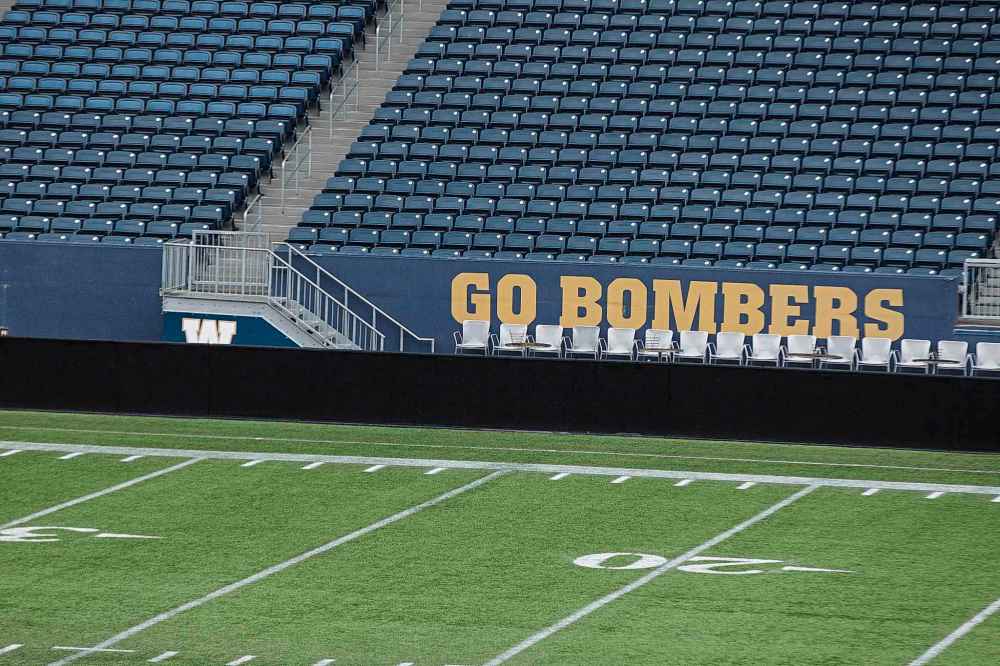
Told of the premier’s plans to restructure the stadium agreement, MacKay insisted on an open process.
“Right now, I don’t think the public has any idea where we’re at other than we’re out hundreds of millions of dollars. So we need some kind of assessment of what happened. How did we get to this point,” he said.
While it’s a good thing that the government is sitting down with Triple B and the Bombers to try to work out a new deal for the future, it should be done in an open manner, MacKay said.
“If this is a backroom deal to fix a previous backroom deal, we’re going to end up going down the same path again,” he said.
MacKay said every effort must also be made to repay taxpayers for the losses.
larry.kusch@freepress.mb.ca

Our newsroom depends on a growing audience of readers to power our journalism. If you are not a paid reader, please consider becoming a subscriber.
Our newsroom depends on its audience of readers to power our journalism. Thank you for your support.


